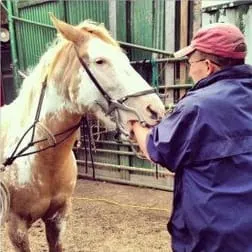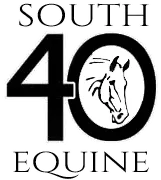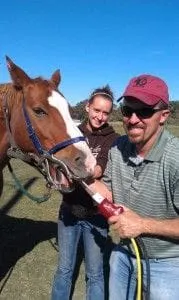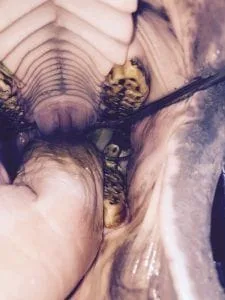Unlike you and me, a horse has teeth which grow for most of their lives while simultaneously being worn down as they chew. This pattern of eruption and wear, coupled with the shape of the equine mouth and the motion they use to grind their feed, means that they have specific dental needs.
It is recommended that horses have their teeth examined by a veterinarian or certified equine dentist professional every six to twelve months and “floated” as necessary to prevent dental issues. Young (less than 8 years) as well as much older horses often require more frequent examinations. During a dental examination we will look for common problems such as the development of sharp enamel points on the outer surface of the upper grinding teeth and inner surface of the lower grinding teeth. We will also look for more subtle changes in the mouth such as “waves”, fractured teeth, oral ulcerations, overgrown horse teeth, imbalanced incisors, and gum disease. A THOROUGH oral exam REQUIRES the usage of a full-mouth speculum and also a mild sedative or relaxant. These exams are necessary to identify and treat minor problems within your horse’s mouth before they become a major detriment to their health. Dental problems can result in less desire to eat due to discomfort or inadequate grinding of food, both of which can result in colic or weight loss. Comprehensive oral care will increase the performance, feed usage and tooth life of your equine athlete.

When your horse requires a float, if your dental provider is using modern power tools to shape the teeth, it is necessary to sedate the patient for the procedure. Only licensed veterinarians are allowed to sedate horses, as they are the most knowledgeable about the drugs and potential side effects. In the rare case of a problem arising, they will also be the best equipped to reverse those effects. Once a horse has reached the desired plane of anesthesia they are ready to safely, securely, and comfortably begin the dental treatment. Although we may remove some tartar buildup during a float, equine dentistry DOES NOT involve brushing a horse’s teeth.
Equine Dentist Equipment
We are fully equipped with all types of equine dental equipment and two mobile dentistry units which enable us to examine a horse in any location and treat dental issues wherever there is electricity available to power our dental floats. If you are worried or have concerns about your horse’s teeth, or if you would like an exam to ensure the health and performance of your horse, please contact South 40 Equine to schedule an oral evaluation with one of our veterinarians or go here for more information on what to look for in an Equine Dentist.



